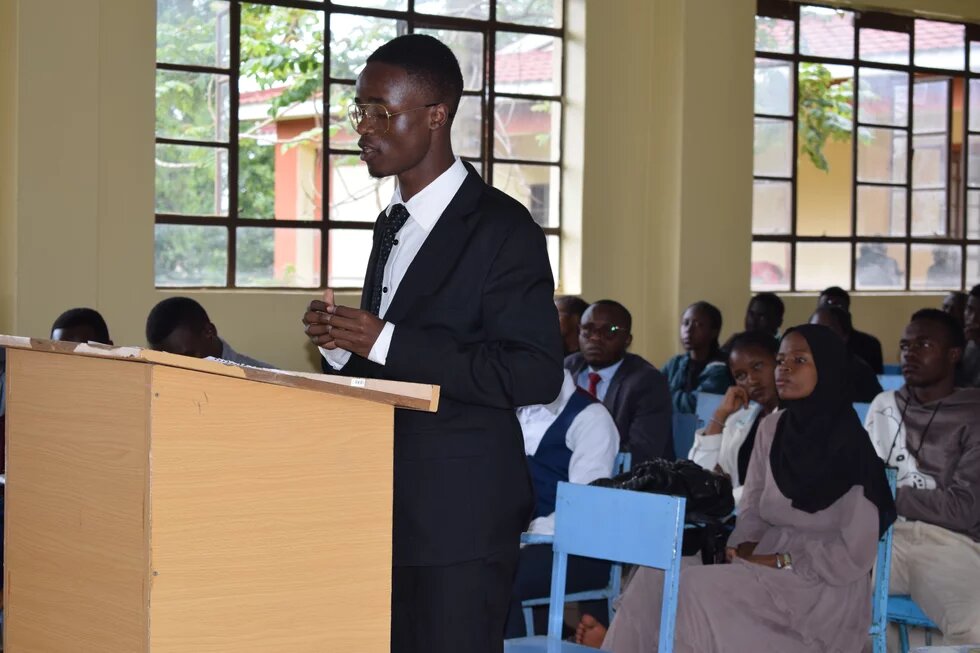
Despite increasing awareness, the LGBTQ+ community in Kenya faces significant legal, social, and cultural challenges that restrict their access to essential services such as sexual and reproductive healthcare. This article by Enosh Abuya, Executive Director, The Eagles for Life Kenya (TEFL-K) underscores the vital role higher education institutions play in promoting human rights, particularly in regard to sexual orientation, gender identity, and expression (SOGIE) rights.

As Kenya continues its journey toward a more inclusive society, the conversation around human rights—particularly sexual orientation, gender identity, and expression (SOGIE) has gained momentum. However, despite the growing awareness, there remains a significant gap in advocating for the rights of those in this community. Individuals in these communities continue to face legal, social, and cultural barriers that limit their access to essential services, such as sexual and reproductive health care.
As we strive for a more inclusive and equitable society, it is crucial to recognize the role that higher education institutions can play in championing SOGIE rights. Tertiary institutions have long been spaces where critical thinking, advocacy, and theories for social change is nurtured. They provide a platform for students and faculty to explore complex social issues and offer a safe space for diverse voices to be heard, hence the ideal environment to foster dialogue around SOGIE rights. This topic remains sensitive in many societies and cultures.
Advocacy efforts for any groups of people evolve and one of the emerging practices is collaboration between learning institutions and civic society actors. This has seen departments, faculties and various schools finding ways to enhance not just the learning experience of students but also engaging with the communities around them. Higher learning institutions are also uniquely positioned to provide a neutral platform for engagement with various stakeholders from students and faculty, to civil society local government representatives and the community at large.
In a recent moot court competition organized by Kisii University with the support of The Eagles for Life Kenya (TEFL-K) and Heinrich Boll Foundation, students of law and social sciences took to the floor to raise pertinent issues affecting minority groups. Participating universities included the University of Nairobi School of Law-Kisumu campus, Mt. Kenya University, and Egerton University. Debate from this moot court competition sparked conversations about the legal and social structures that perpetuate discrimination against sexual minorities.
From the arguments presented by the students, it was evident that the lesbian, gay, bisexual, transgender and queer or questioning (LGBTI+) community faces numerous challenges in accessing rights that many others take for granted. In countries where homosexuality is criminalized or where gender expression is strictly regulated, LGBTI+ individuals often live in fear of persecution. Access to social services such as sexual and reproductive health is a perfect example where marginalization is perpetuated. From the evidence-based arguments presented, it emerged that most health facilities refuse to either serve LGBTI+ individuals or have discriminatory practices, leaving these individuals without access to the care they need.
One of the most pressing issues that emerged from these debates is the need for legal reform. In Kenya, laws that criminalize same-sex relationships or restrict gender expression continue to be enforced. The existing laws and policies are often open to interpretation by the public and authorities. One proactive way to advance the inclusion of SOGIE rights in Kenya is through the Repeal 162 case, brought forward by the various LGBT organizations movement. These laws need to be repealed, and inclusive policies that protect the rights of all individuals, regardless of their SOGIE, must be implemented
Legal frameworks in many countries, such as Kenya, fail to protect, or even criminalize, the violation of rights of LGBTI+ persons. Creating significant barriers to access of essential services, which not only affects their health and well-being but also perpetuates stigma and discrimination. Through hosting initiatives such as human rights moot courts, debates, dialogues, and paralegal training, higher learning institutions can provide students with practical experience in practicing the law. Another proactive mechanism is by integrating SOGIE rights into the curriculum of higher learning institutions. The learnings will subsequently generate awareness, foster critical thinking, evaluation and interpretation of the law and challenge harmful societal norms. Ultimately leading to the creation of a new generation of young people who are not only aware of these issues but are actively working to dismantle the legal and social barriers that affect LGBTI persons.
The moot courts and debates are not just academic exercises. They offer a space for students to propose actionable solutions that can inform future policies, engage religious leaders, legal experts, and human rights advocates to bridge the gap between academia and real-world advocacy. Learning is not restricted to lecture halls. Demonstrating to students the importance of multidisciplinary collaboration in advancing human rights lays the foundation for a more inclusive and just society for all.
This article was first published in the Business Daily Kenya on 10th October 2024.